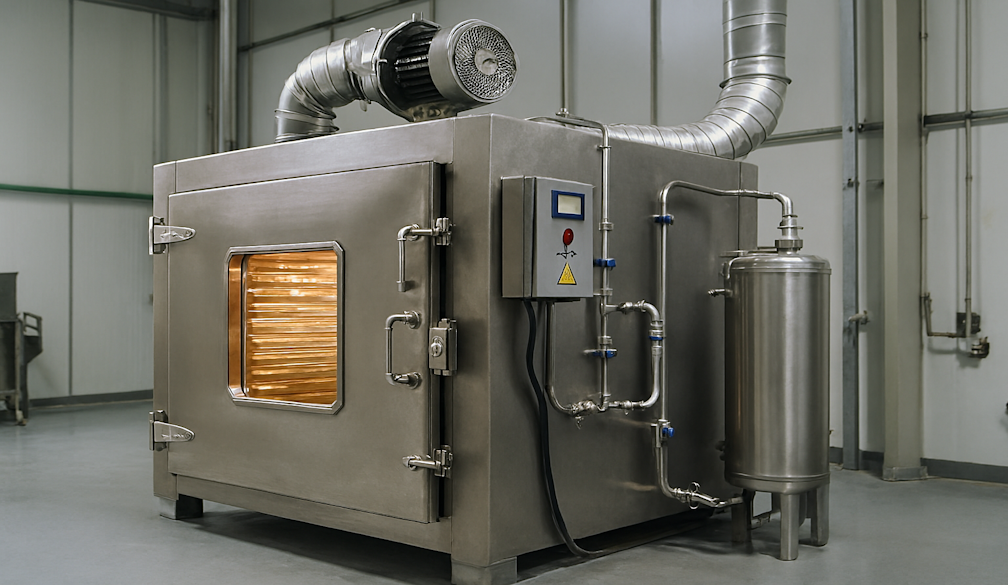Industrial Drying Equipment: Enhancing Efficiency and Precision Across Manufacturing and Processing Industries

In the world of industrial production, maintaining controlled moisture levels is vital for ensuring product quality, consistency, and shelf life. Whether it’s food processing, pharmaceuticals, textiles, or construction materials, removing unwanted moisture efficiently is a critical step in the manufacturing process. This is where industrial drying equipment plays an essential role — providing precision, reliability, and energy efficiency in drying processes that support large-scale operations.
Across Melbourne and throughout Australia, industries rely on advanced drying systems to optimise production, improve efficiency, and meet strict quality standards. Modern industrial dryers are engineered with cutting-edge technology, offering solutions tailored to diverse applications — from removing moisture in grains to curing coatings or drying minerals.
Understanding the Role of Industrial Drying Equipment
Industrial drying equipment is designed to remove moisture from materials, either through direct heat, air circulation, or vacuum-based systems. The goal is to achieve a specific moisture content level that ensures product stability and usability while maintaining energy efficiency.
In manufacturing, drying is not just about removing water — it’s about controlling the process precisely. Too much drying can damage the product, while insufficient drying can lead to spoilage, contamination, or reduced performance. The best drying systems maintain a fine balance between speed, temperature, and airflow to ensure consistent results.
Types of Industrial Drying Equipment
Different industries use various types of drying systems depending on the nature of their materials, production capacity, and required output. Some of the most common include:
Rotary Dryers
Rotary dryers are among the most widely used drying systems in heavy industries such as mining, agriculture, and chemicals. These cylindrical drums rotate slowly while hot air circulates through them, effectively drying bulk solids such as grains, minerals, and fertilisers.
Fluid Bed Dryers
Fluid bed dryers are highly efficient systems that suspend materials in an upward flow of hot air, allowing for uniform drying. They are ideal for heat-sensitive materials such as pharmaceuticals, food powders, and polymers.
Spray Dryers
Spray dryers convert liquid or slurry materials into dry powders by rapidly drying them with hot air. This method is widely used in the food and beverage industry for producing milk powder, coffee, and flavouring agents.
Vacuum Dryers
Vacuum drying is ideal for heat-sensitive or delicate products. These dryers operate under low pressure, allowing water to evaporate at lower temperatures, preserving the product’s quality and chemical structure.
Conveyor Dryers
Used for continuous production processes, conveyor dryers move materials through a heated tunnel on a conveyor belt. They are perfect for drying textiles, coatings, and food products.
Infrared and Microwave Dryers
These advanced drying systems use electromagnetic radiation to heat and dry materials quickly and uniformly, significantly reducing energy use and processing time.
Each drying system serves a unique purpose, and selecting the right one depends on factors like material composition, moisture levels, heat sensitivity, and production requirements.
Applications of Industrial Drying Equipment
The use of industrial drying equipment spans numerous industries across Melbourne and beyond.
Food Processing:
In the food sector, drying is essential for preserving ingredients, improving texture, and extending shelf life. Equipment like spray and freeze dryers are used to process milk, fruits, herbs, and spices.
Pharmaceuticals:
Dryers ensure that raw materials and final products meet stringent moisture and stability standards. Vacuum and fluid bed dryers are preferred due to their gentle and controlled drying capabilities.
Chemical and Petrochemical Industries:
Chemical manufacturing relies on drying equipment to remove solvents and moisture from powders, catalysts, and compounds without altering their chemical structure.
Textile and Paper Industries:
In fabric production and paper manufacturing, industrial dryers help set dyes, remove water after washing, and achieve the desired texture and finish.
Construction Materials:
Drying is critical in producing cement, sand, plaster, and coatings, ensuring durability and consistency. Rotary dryers are often used in these applications due to their capacity to handle large volumes.
Agriculture:
Farmers and food manufacturers use drying systems to process grains, seeds, and animal feed, preventing spoilage and ensuring longer storage life.
Metallurgy and Mining:
Industrial dryers are used to dry ores, concentrates, and minerals before further processing, reducing handling costs and improving energy efficiency.
Benefits of High-Quality Industrial Drying Equipment
Modern industrial dryers are engineered to meet the high demands of continuous production and precision drying. The benefits include:
- Improved Energy Efficiency
Advanced drying systems are designed to maximise heat transfer and minimise energy waste, resulting in lower operating costs.
- Enhanced Product Quality
Consistent and controlled drying helps maintain product integrity, texture, and performance, reducing defects and reprocessing.
- Faster Production Times
High-capacity dryers speed up the drying process, enabling continuous production and shorter turnaround times.
- Greater Reliability and Safety
With precise temperature and moisture control, modern drying systems reduce the risk of overheating or contamination.
- Versatility
Industrial dryers can be adapted to handle a wide range of materials, from fine powders to large solids, making them suitable for multiple industries.
- Reduced Labour Costs
Automated systems require minimal manual supervision, allowing operators to focus on other aspects of production.
Technological Advancements in Industrial Drying
The evolution of industrial drying technology has been driven by a focus on sustainability, automation, and process efficiency. Many Melbourne-based manufacturers now design dryers with smart control systems that allow real-time monitoring of temperature, humidity, and airflow.
Integration with Internet of Things (IoT) technology enables remote operation and predictive maintenance, reducing downtime and energy use. Energy recovery systems — which reuse heat generated during drying — are also becoming more common in industrial plants.
Eco-friendly solutions such as solar-assisted dryers and low-emission burners are helping companies meet sustainability targets without sacrificing performance.
Conclusion
From pharmaceuticals and food processing to mining and manufacturing, industrial drying equipment forms the backbone of efficient, precise, and reliable production. Modern dryers not only speed up operations but also ensure consistent quality and energy efficiency, helping businesses meet their production goals while reducing costs.














